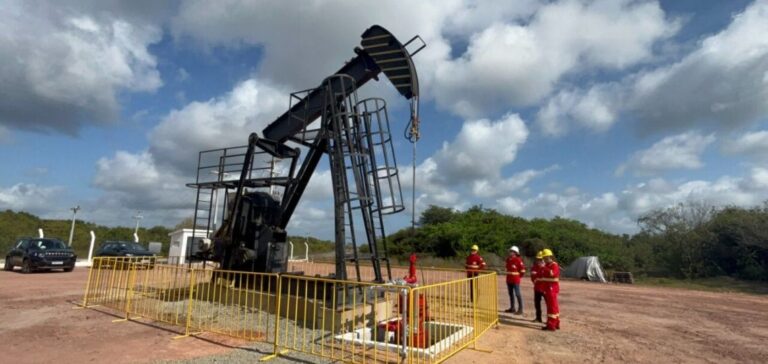Oil operator Petro-Victory Energy Corp. (TSXV: VRY) has signed a purchase agreement with Azevedo & Travassos Petroleo (ATP) for the acquisition of 13 oil fields in Brazil. This transaction, concluded with subsidiaries of Brava Energia S.A. (BVMF: BRAV3), marks a strategic expansion of Petro-Victory in the Potiguar Basin.
A growing production portfolio
The acquired assets cover 38,301 acres of operational land, located near Petro-Victory’s existing sites. Current production stands at 250 barrels of oil per day, with an optimization program designed to increase this capacity. According to Brazil’s National Agency of Petroleum, the fields contain approximately 125 million barrels in place, with an estimated recovery rate of 13.3%.
The development plan includes reopening inactive wells and applying advanced secondary recovery techniques to enhance site profitability. The acquired infrastructure includes 13 production stations, 40 storage tanks, and several transfer and injection pumps.
An investment structured in multiple payments
The total acquisition cost is USD 15 million, divided into several tranches. Petro-Victory, holding a 50% stake in the operation, will contribute USD 7.5 million. The first payment of USD 600,000 has been made at the signing of the agreement, while the remaining payments will be spread over two years, including a 7% gross overriding royalty.
Synergies and operational cost reduction
The integration of these new assets enables Petro-Victory to streamline operations by pooling logistics, maintenance, and administration with its other assets in the Potiguar Basin. The automation of certain sites, such as Pintassilgo and Porto Carão, is also expected to improve operational efficiency.
A work program focused on optimization
The operator plans to use advanced diagnostic technologies to identify underexploited production zones and apply hydraulic stimulation techniques to optimize recovery. The implementation of new water injection systems is also being considered to increase reservoir pressure and improve extraction rates.
Completion and outlook
The transaction is expected to close in the second half of 2025, subject to regulatory approvals from Brazil’s National Agency of Petroleum. Petro-Victory plans to update its certified reserve report following this acquisition, with a potential 50% increase in its proven reserves.






















